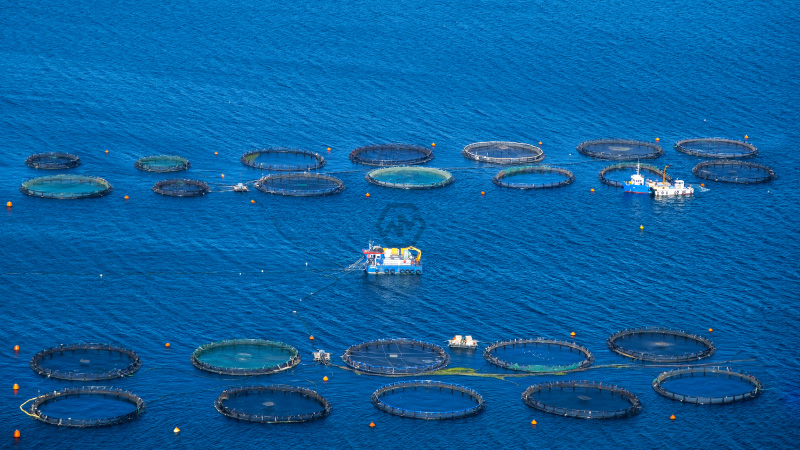- Aquaculture surpasses wild catch for the first time, marking a shift in global seafood production.
- Environmental challenges include habitat impacts, pollution, and genetic concerns from farmed fish.
- Sustainable practices and consumer awareness are critical for balancing seafood demand with environmental stewardship.
The rise of aquaculture surpassing wild catch signals a pivotal moment in global seafood production. This shift reflects the growing demand for seafood amidst stagnating wild fishery yields. While aquaculture offers potential solutions to meet this demand, it also introduces new environmental challenges.
As consumers navigate seafood choices, awareness of sourcing and sustainability becomes crucial. Opting for certified sustainable seafood and supporting practices that minimize environmental impact can play a significant role in promoting a balanced approach to seafood consumption.
Balancing Act: The Evolving Landscape of Aquaculture in Global Fisheries
Aquaculture’s ascendancy over wild catch marks a significant milestone in global seafood production. This shift is driven by increasing consumer demand and the limitations of wild fisheries to meet this growing need sustainably. While aquaculture presents a viable solution to supply seafood, it introduces its own set of challenges. Issues such as habitat degradation, pollution from feed and waste, and genetic interactions with wild populations highlight the importance of sustainable practices and rigorous environmental management.
Consumers play a pivotal role in shaping the future of seafood sustainability. By choosing certified sustainable options and supporting practices that minimize environmental impact, individuals can contribute to a healthier marine ecosystem. Awareness of seafood sourcing and production methods empowers consumers to make informed choices that align with their values and promote sustainable fisheries practices globally.
Innovations in aquaculture technology offer promising solutions to mitigate environmental impacts. Advancements in feed efficiency, waste management, and disease control aim to reduce aquaculture’s footprint on marine ecosystems. By investing in research and development, stakeholders seek to enhance the sustainability and efficiency of aquaculture operations worldwide.
In conclusion, the shift towards aquaculture as a primary source of seafood underscores both the challenges and opportunities in meeting global food demand sustainably. Emphasizing innovation, rigorous environmental stewardship, and informed consumer choices will be crucial in shaping a future where seafood production supports both human needs and ecological balance.
“Aquaculture’s rise marks a pivotal shift in how we meet seafood demand, but it must be accompanied by sustainable practices to safeguard our oceans for future generations.”



